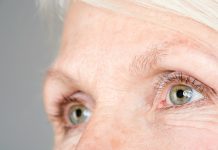
Scientists from Michigan State University found that women with a history of endometriosis may be more likely to have a stroke later in life than their peers with no history of the chronic inflammatory condition.
The study suggested the higher risk may be due at least in part to procedures to treat the condition, such as having a hysterectomy, removing a woman’s ovaries, or postmenopausal hormone therapy.
The research is published in Stroke and was conducted by Stacey A. Missmer et al.
Endometriosis is an often painful condition that occurs when tissue similar to that lining the uterus grows outside of it. It may affect about 1 in 10 U.S. women of childbearing age.
Research has linked endometriosis to a higher risk for other cardiovascular conditions, including heart attacks, high blood pressure, and high cholesterol.
In the study, the team analyzed the link between endometriosis and two types of stroke: ischemic, caused by blood clots disrupting blood flow to the brain, and hemorrhagic, caused by bleeding in the brain.
They analyzed medical data for 112,056 women of childbearing age enrolled in the Nurses’ Health Study from 1989 to 2017.
During the 28 years of follow-up, those who developed endometriosis were 34% more likely to have strokes than those who did not have the gynecological condition.
Having a hysterectomy (having the uterus removed) or oophorectomy (having the ovaries removed) accounted for 39% of the higher stroke risk, while postmenopausal hormone therapy accounted for 16% of the increased risk.
Other research suggests hysterectomy is linked to elevated stroke risk even without a history of endometriosis.
But other risk factors shouldn’t be overlooked.
The team says clinicians should look at the health of the whole woman, including elevated blood pressure, high cholesterol, and other new stroke risk factors, not only symptoms specifically associated with endometriosis, such as pelvic pain or infertility.
If you care about stroke, please read studies that at 27, she collapsed in the shower from a stroke and new way to save many more lives from heart attack and stroke.
For more information about health, please see recent studies that newer blood thinner drugs plus aspirin could cut stroke risk by nearly 30%, and results showing that stroke risk is 8 times higher in people with COVID-19.
Copyright © 2022 Knowridge Science Report. All rights reserved.



